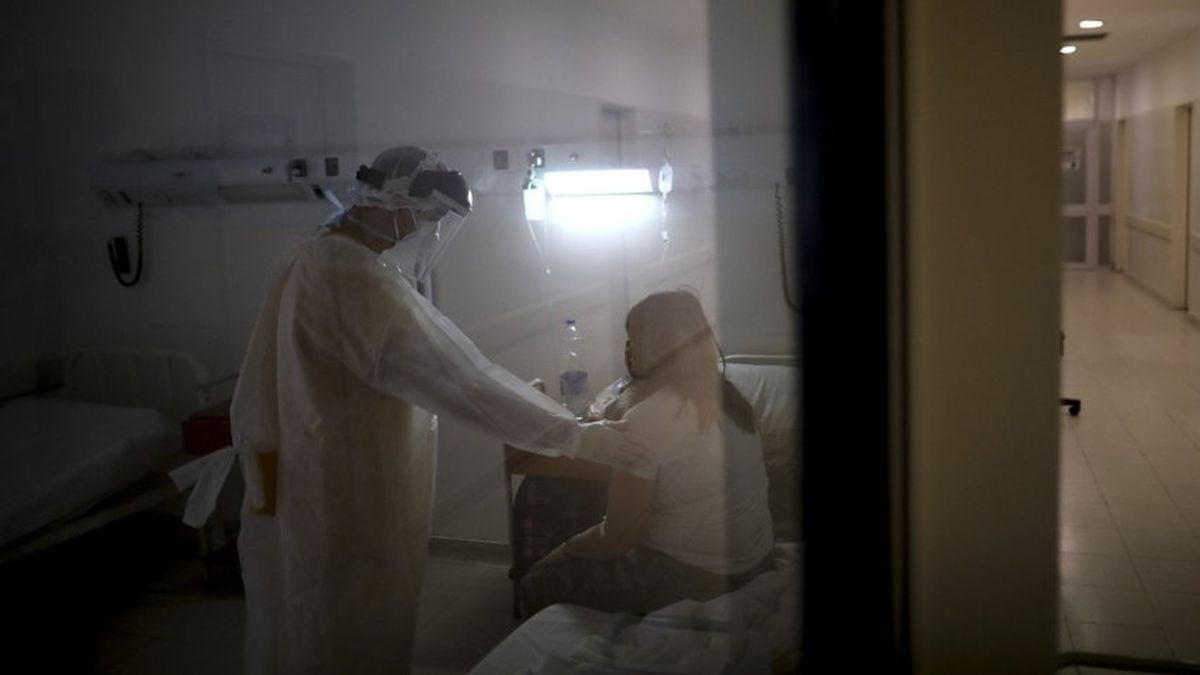Countries like Argentina should reconvert tobacco cultivation to food, urged the World Health Organization (WHO) on Friday, through an emphatic report addressed to governments that today encourage and subsidize this practice. Argentina does so and is in 12th place in the ranking of the 50 economies with the largest area allocated to this plantation, something that for the agency not only represents a damage to the health of potential smokers and workers in the sector, but also, they say, represents a "threat that promotes food insecurity".
The WHO's request, which is disseminated on the occasion of World No Tobacco Day (May 31), weighs especially heavily. For the agency (based on FAO data from 2021), Argentina is the third country in the Americas with the highest production of tobacco, a crop that, they estimate, occupies 53,840 hectares, more than half that of the United States (95,730 ha) and less than a sixth of Brazil (357,230 ha). However, national authorities estimate 35% more land allocated to this crop.
This was stated by Guido Varas, coordinator of the Special Tobacco Fund (FET), an area that depends on the Secretariat of Agriculture, Livestock and Fisheries. He explained to this media that the hectares of tobacco, "although they vary each year, are around 75,000."
Thus, Argentina would be positioned one step higher than what the WHO estimates, in 11th place in the ranking.
Varas' data are from 2022 and include the seven producing provinces in the country, all in the north. They are Salta, Jujuy, Misiones, Tucumán, Corrientes, Catamarca and Chaco.
Clarín asked the official and also Pedro Pascutini, president of the Jujuy Chamber of Tobacco and the Argentine Federation of Tobacco Producers, if it seemed viable, possible and eventually convenient to turn those tobacco hectares to food cultivation. The answer was "no".
No tobacco, a health issue
With this wake-up call, the WHO points to a central issue, and that is that more than 8 million people die per year, because of tobacco. Seven million of those deaths are due to direct consumption, while the rest are attributed to non-smokers exposed to smoke.
They also highlight the exposure of the industry's own workers who, focusing on Argentine crop fields, are "between 100 and 120 people per hectare seasonally, that is, in harvest season."
The specific data handled by the sector report that there are about 20,000 to 22,000 producers, but of the workers who harvest "the figure is more difficult to calculate because perhaps the same people work on different farms," said the president of the FET, a fund that, by the way, handles 7% of the sale of Argentina's cigarette industry ("after taxes"). clarified). That is, about 50,000 to 55,000 million pesos, according to estimates for 2023.
From tobacco to food
The WHO notes that up to 1 in 4 tobacco growers suffer from "green tobacco", which is nothing more than nicotine poisoning on the skin, a picture that generates great general discomfort. This is not counting exposure to heavy chemicals and pesticides. They claim that "a tobacco grower can absorb nicotine equivalent to 50 cigarettes per day."
The arguments, in this regard, speak for themselves and require immediate attention from Governments. Perhaps for some it will be more difficult to understand (in communicational terms) the direct relationship, posed in terms of a "massive threat" of an industry (of which an entire chapter could be written) towards a global social drama that seems to respond to many variables. That is, the one they trace from tobacco cultivation to food insecurity.
Tobacco production has a great economic and social influence in the provinces where it is grown.
But, from another point of view, the issue is not minor either. They point out that "a record 349 million people in 79 countries face acute food insecurity, many of them in low- and middle-income countries" and that "many of these countries use large tracts of fertile land to grow tobacco instead of healthy food."
Those nations "often face a negative economic impact due to the adverse social, environmental and health impacts of tobacco farming," they add.
They also explain that, "in many cases, foreign exchange earned from tobacco exports is used to import food."
In Argentina, Picotini confirmed, 85% to 90% of tobacco production is exported: "Last time we were paid 633 pesos per kilo, in the production of maximum quality, but there are 48 different types of tobacco. Here about 70 to 80 million kilos are produced annually. For exports, about 200 million dollars per year come in."
Tobacco, a realistic scenario
WHO's slogan is "Grow food, not tobacco." The call urged governments to "stop subsidizing tobacco growing and support more sustainable crops, which could feed millions of people."
It must be said that Argentina signed, in 2003, the WHO Framework Convention on Tobacco Control (FCTC), which just days ago (on May 16) was sent to Congress from the Ministry of Health for ratification. However, Varas explained that this agreement, in principle, does not propose to stop producing tobacco."
"It's not a replacement but a complement. All tobacco provinces produce different types of food," he explained.
In addition, he said, "it would be impossible to do it and more from one day to the next. If there were the generation of a policy of articulation thought of years, it could be, but today, telling a tobacco producer to stop doing what he does is impossible. They are provinces that are closely linked by their production. The social and economic impact that this activity generates is very great."
"I learned it in territory. Tobacco is a combination of art, culture and craft, from production to harvest," he added.
In the same sense, Picotini said: "The importance of tobacco in Argentina does not go through the surface or the importance it may have for international trade. It happens because it is a strong social economic generator, with great influence in the provinces. Because it is a labor-intensive artisanal work, the importance in the jurisdictions is enormous."
He assured that the countries that bet on the reconversion of the territories "did not do well."
"Nobody remembers the people who were engaged in the activity," he said, and concluded: "The tobacco activity has shown that it can coexist with the others. Today the conditions for a reconversion are not given."
MG
See also




/cloudfront-eu-central-1.images.arcpublishing.com/prisa/MUZAD6ZH7FE53M2E2YXOBV5XHU.jpg)



